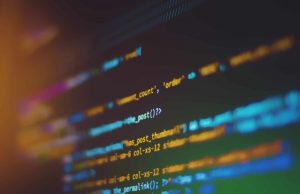Applying Natural Language Processing to Real-World Problems

This spring, PaCCS Communications Officer Kate McNeil sat down with Professor Yulan He to discuss her work as a computer science researcher at the University of Warwick. Professor He’s previous work on Real-Time Detection of Violence and Extremism from Social Media was funded by the EPSRC and fell within the remit of the Global Uncertainties project.
Over the course of her career thus far, Professor Yulan He has applied her knowledge of natural language and her interest in the exploration of statistical models in representing uncertainty to a wide array of problems facing society while collaborating with others working in fields as diverse as geochemical research, healthcare, and the future of cities. Her current research focuses on an Event-Centric Framework for Natural Language Understanding is supported by a 5-year Turing AI Fellowship. While reasoning comes naturally to humans, work to produce reasoning capabilities in the context of natural language systems in artificial intelligence is an ongoing challenge. Whereas people can use so-called ‘common sense’ in determining their responses to information introduced in conversations and can rely upon reading comprehension tools to help them ask appropriate questions and relate written text to the eternal knowledge they have from things they have previously read, Professor He’s work explores how to produce similar outcomes in AI. The goal is to develop systems which will allow AI to build a relevant evidence base over time, to reason, and to understand how to support or refute claims. Ultimately, this research aims to help produce AI with the natural language system reasoning capabilities to assess the veracity of claims circulated on the web and in social media. Doing so could help to combat the spread of misinformation and fake news – including in the context of conflicts, crises, or future pandemics.
Throughout the course of the ongoing covid-19 pandemic, Professor He has used natural language processing to develop tools for exploring the reasons behind vaccine attitudes. Drawing upon annotated data, her work is helping to deepen our insight into who supports vaccination and why by teaching AI models to learn to recognize patterns in relevant data. This is not her first foray into applying tools from computer science to the management of issues in public health. Her other work in this area has included work building a system for NHS documents which can automatically attract topics from patient records which will make it easier to search NHS medical documents; as well as an ongoing collaboration with Astra Zeneca on pharmacovigilance – the study of adverse effects from drugs. The latter research collaboration has the potential improve healthcare practitioners’ knowledge of when certain drugs may cause certain side effects in certain groups, automatically annotating relevant information on patient medical reports.
At the core of Professor He’s research is the aim of improving the capability of machines to understand human language – an area which has varied potential applications. For those interested in government or policymaking for example, natural language processing has the potential to increase the power of citizen voices. One of her current students is working on using natural language processing to summarize key points and contrasting opinions from public consultations into a London green belt, while Professor He is also co-investigator of a project working to produce outputs from a citizen participation platform in Madrid.
Early in her career, Professor He received support from the EPSRC for a project on the Real-Time Detection of Violence and Extremism from Social Media. This project, which started in the summer of 2011, focused on the potential for natural language processing to monitor social media traffic to identify violence and extremism and inform police response. The project was undertaken in the context of the both the use of social media to organize assembly in the Arab Spring, and the aftermath of the 2011 UK riots – highlighting the different ways in which social media could be used to assemble and coordinate. While it is easy to train models that can attack messages carrying a violence signature, a standard approach is insufficient for this type of work, as people then invent new words to use in their online coordination efforts. Consequently, this project relied upon prior information surrounding words related to violence which could be used to match with other words and then train a model.
Since then, the field of AI research in academia has changed dramatically. The boom of AI has changed the academic culture, and while we are learning more at a faster rate, the increase in scale has made it harder to keep track of all the developments in the field, making it more important for researchers to find their focus. For those now beginning their careers in computer science however, Professor He believes that the most important thing for an early career researcher is to maintain curiosity while broadening your scope beyond the constraints of the problem you currently face: “if you are curious about something and want to find a solution, that curiosity will motivate you,” she mused.
You can learn more about Professor He’s work here.



